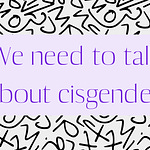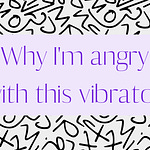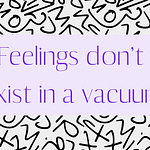In the spring of the year I turned 25, I started sleeping with my friend Nick. We’d been mates for a while, occupying the same circles, going to the same bars and gigs and clubs. Friendship turned to flirtation which turned to dirty messages pinging between our phones. Eventually we managed to engineer it so that we left an evening’s socialising at the …
Share this post

The best bad sex I ever had
overthinkersguidetosex.substack.com
The best bad sex I ever had
Feb 12, 2021
∙ Paid
The Overthinker's Guide To Sex
The Overthinker's Guide To Sex is a sex and relationships newsletter by freelance journalist Franki Cookney. This is the audio version.
The Overthinker's Guide To Sex is a sex and relationships newsletter by freelance journalist Franki Cookney. This is the audio version.Listen on
Substack App
RSS Feed
Recent Episodes










